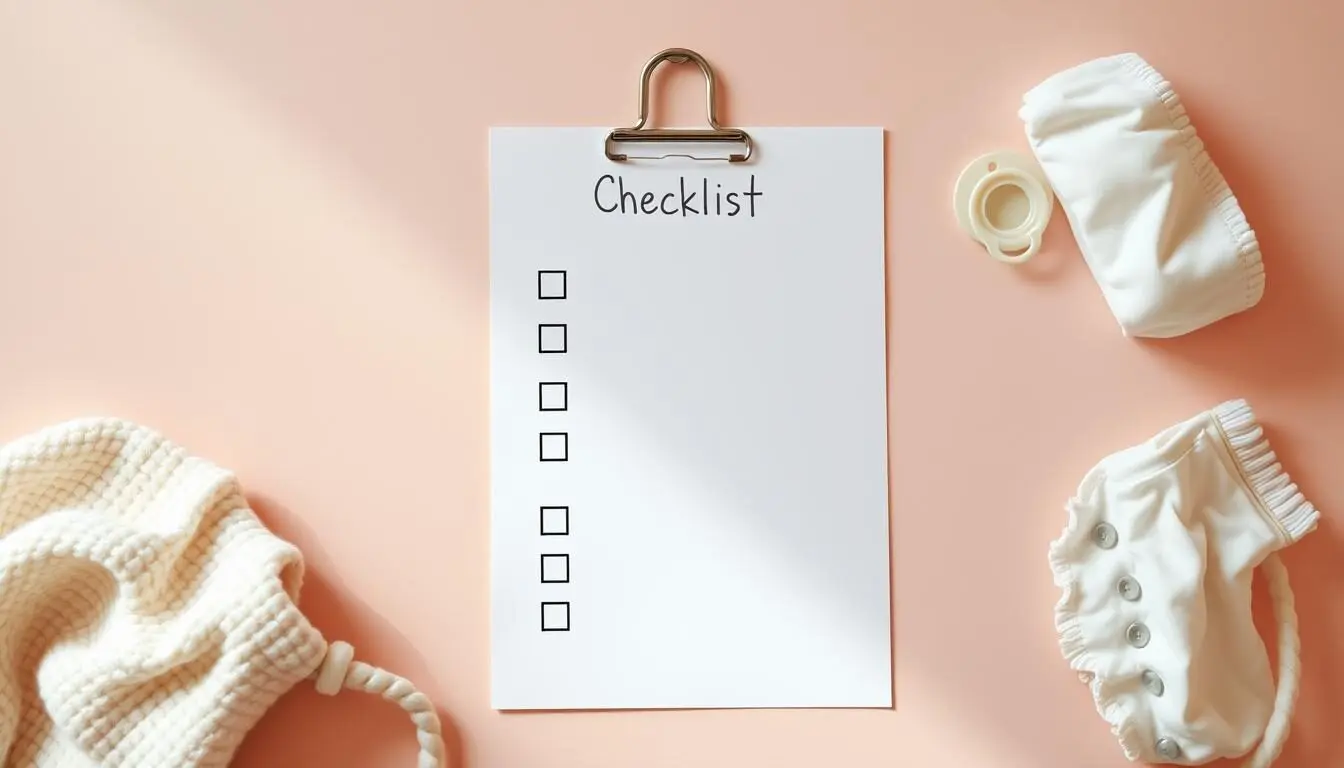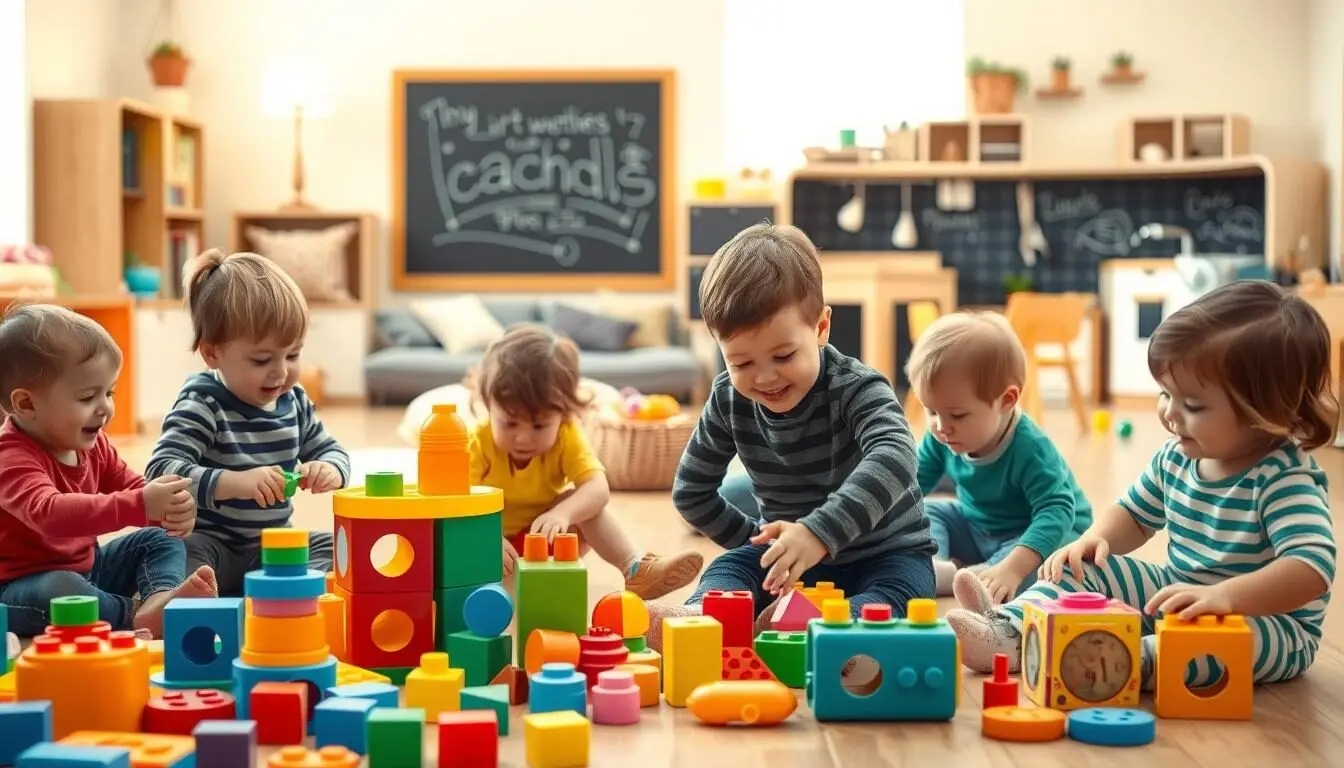Welcoming a new baby into the family can be a significant change for older siblings. As a parent, it’s essential to approach this situation with care and sensitivity to ensure a smooth transition for the whole family.
Preparing your child in advance can make a big difference. By understanding the impact of a new baby on older siblings and taking proactive steps, you can foster a positive and loving environment for all your children.

This article will explore various strategies and tips for older siblings to help you prepare your child for the arrival of a new baby.
Key Takeaways
- Understand the impact of a new baby on older siblings.
- Learn proactive steps to foster a positive environment.
- Discover strategies to prepare your child.
- Get tips on managing the transition.
- Create a loving environment for all your children.
Understanding the Impact of a New Baby on Older Siblings
The introduction of a new baby to the family can significantly impact older siblings, emotionally and socially. This event can bring about a mix of emotions and reactions that vary widely among children, depending on their age and individual personality.
Emotional Responses to Expect
Older siblings often experience a range of emotions when a new baby arrives. These can include feelings of excitement and curiosity about the new family member, but also jealousy and resentment towards the attention the new baby receives. It’s essential for parents to recognize these emotions and address them appropriately to foster a positive sibling bonding experience.
Some children might feel displaced or confused, especially if they were previously the center of attention. Others might feel more protective or responsible towards the new baby. Understanding these emotional responses is crucial in supporting older siblings during this significant change.
Age-Specific Reactions
The reaction of older siblings to a new baby can vary significantly based on their age. For instance, younger children might struggle with understanding the concept of a new sibling and may require more reassurance and explanation. Older children, on the other hand, might be more aware of the changes and challenges a new baby brings but could also feel more sibling rivalry as they adjust to sharing parental attention.
- Younger Children: May need more reassurance and simple explanations about the new baby.
- Older Children: Might be more involved in caring for the baby and could benefit from being given responsibilities.
By understanding these age-specific reactions, parents can tailor their approach to introducing a new baby to an older sibling in a way that is both supportive and engaging for the older child.
When and How to Share the News
Preparing your older child for the arrival of a new baby starts with sharing the news in a way that is both exciting and comforting. The timing and method of this announcement can significantly impact your child’s adjustment to the new addition.
Timing Considerations by Age
The age of your older child plays a crucial role in determining when to share the news. For younger children, it’s often best to wait until later in the pregnancy, as they may not fully understand the concept of time. Older children, however, can be told earlier, allowing them to process and adjust to the news.
Age-specific guidelines:
| Age | Recommended Time to Share News |
|---|---|
| 0-2 years | After birth or when they start to understand |
| 2-4 years | Later in pregnancy (around 6-7 months) |
| 5 years and above | As soon as you feel comfortable sharing |
Creating a Positive Announcement Experience
Creating a positive experience when sharing the news involves being honest, reassuring, and prepared to answer questions. Use simple and clear language that your child can understand.
Tips for a positive announcement:
- Use a calm and happy tone
- Be prepared for a range of reactions
- Reassure them of their importance in the family
Answering Common Questions
After sharing the news, your child will likely have questions. Be honest and open in your responses, providing reassurance without making promises you can’t keep.
Common questions and tips:
| Question | Tips for Answering |
|---|---|
| What will happen to me? | Reassure them that they will still be loved and cared for |
| Can I help with the baby? | Encourage them to participate in baby-related tasks |
| Will the baby like me? | Explain that the baby will love them |
Involving Older Siblings in Pregnancy and Preparations
One of the most effective ways to ensure a smooth transition for older siblings is to involve them actively in pregnancy and preparations. This involvement not only helps in sibling bonding but also makes the older child feel important and included in the process.
Including Children in Doctor’s Appointments
Taking older siblings to doctor’s appointments can be a great way to include them in the pregnancy journey. Many healthcare providers are happy to explain the process to the older child, showing them ultrasound images and explaining the baby’s development. This can help the child feel more connected to the unborn baby.
Nursery Setup and Baby Shopping Together
Involving older siblings in setting up the nursery and buying baby supplies can make them feel like they’re playing an important role. Let them help pick out toys, clothes, and other baby essentials. This shared experience can enhance sibling preparation and build anticipation for the baby’s arrival.
Age-Appropriate Tasks and Responsibilities
Assigning tasks that are appropriate for the older child’s age can help them feel more involved. For younger children, this might mean helping to sort baby clothes, while older children can take on more significant responsibilities like helping to care for the baby’s needs after arrival. This not only aids in helping older siblings adjust to new baby but also teaches them valuable lessons about responsibility and caring for others.
By involving older siblings in these ways, parents can foster a positive and supportive environment for the new baby, promoting healthy sibling bonding from the start.
Preparing Older Siblings for a New Baby: Essential Strategies
To ensure older siblings feel included and prepared for the new baby, parents can employ several essential strategies. Preparing older siblings for a new baby requires a thoughtful and multi-faceted approach.

Reading Books About New Babies
One effective way to prepare older siblings is by reading books about new babies together. This can help them understand what to expect and foster a positive attitude towards the new addition. Books can provide a gentle and engaging way to introduce the concept of a new sibling, making the experience less intimidating.
Role-Playing with Dolls
Role-playing with dolls is another valuable strategy. It allows older siblings to act out different scenarios, such as feeding or soothing the baby, which can help them feel more involved and prepared. This interactive approach can make the upcoming changes feel more manageable and fun.
Visiting Friends with Babies
Arranging visits to friends or family members with babies can provide older siblings with a real-life experience of what it’s like to have a new baby in the house. These visits can help demystify the baby’s presence and make the older sibling more comfortable with the idea of having a new sibling.
Discussing What to Expect
Having open discussions about what to expect with the arrival of the new baby is crucial. Parents should be prepared to answer any questions their older child may have and provide reassurance about their feelings and concerns.
“The way we talk to our children becomes the way they talk to themselves.”
This quote highlights the importance of positive and supportive communication.
Creating Special Sibling Bonding Opportunities
The arrival of a new baby is a significant event, and creating opportunities for older siblings to bond with the newborn can lead to a more loving and supportive family. Sibling bonding is a vital aspect of family relationships that can have a lasting impact on the children’s emotional and social development.
Pre-Birth Bonding Activities
Engaging older siblings in pre-birth activities can help them feel more connected to the new baby. Some effective ways to do this include:
- Involving them in the preparation of the nursery
- Letting them feel the baby kicking in the womb
- Discussing the upcoming arrival and their role as a big sibling
Preparing Sibling Gifts
Giving older siblings a gift to give to the new baby can encourage a sense of responsibility and affection. Some ideas include:
- A toy or book for the baby
- A special outfit or accessory for the baby
- A handmade coupon book with promises to help care for the baby
Creating Sibling Rituals
Establishing special rituals can help strengthen the bond between older siblings and the new baby. Some ideas include:
| Ritual | Description | Benefits |
|---|---|---|
| Daily Check-ins | Encourage older siblings to check on the baby and report back | Fosters a sense of responsibility |
| Special Outings | Plan outings with just the older sibling and the new baby | Promotes bonding and creates memories |
| Story Time | Read stories together about big siblings and new babies | Helps older siblings understand their new role |
By implementing these strategies, parents can help create a strong and loving bond between their older children and the new baby, laying the foundation for a lifelong sibling relationship.
Managing the Hospital Visit and First Introduction
A well-planned hospital visit can make the first introduction to the new baby a special moment for older siblings. This significant event sets the tone for their relationship and creates lasting memories.

Planning the First Meeting
Before heading to the hospital, it’s essential to prepare older siblings for what to expect. Explain that the new baby will be small and might be sleeping a lot. Reassure them that it’s okay to be curious and that they will have the opportunity to hold the baby if they wish.
According to Dr. Laura Markham, a clinical psychologist, “The way you introduce the new baby to the older sibling can significantly impact their adjustment.” Preparation is key to making this introduction a success.
Hospital Visit Tips
To ensure a smooth hospital visit:
- Bring a small gift for the older sibling to celebrate their new role.
- Keep the first visit brief to avoid overwhelming the older child.
- Encourage gentle interaction with the new baby.
As Dr. Harvey Karp suggests, “Involving older siblings in the care of the new baby can help them feel more connected and less jealous.” Simple actions like letting them bring a diaper or toy for the baby can make them feel included.
Making the Introduction Special
To make the introduction even more special, consider the following:
“The love between siblings is a lifelong gift. Making the first introduction a positive experience can foster a strong bond between them.” – Unknown
Creating a positive atmosphere during the hospital visit can have a lasting impact on the sibling relationship. By being thoughtful and prepared, parents can help their children develop a lifelong connection.
Addressing Sibling Jealousy and Rivalry
The arrival of a new baby can trigger a range of emotions in older siblings, including jealousy. As parents, it’s essential to recognize the signs of jealousy and implement strategies to manage these feelings, fostering a more harmonious household.
Recognizing Signs of Jealousy
Older siblings may exhibit various behaviors when they feel jealous or threatened by the new addition. These can include:
- Acting out or becoming more aggressive
- Regression to earlier behaviors, such as bedwetting or thumb-sucking
- Withdrawal or becoming more clingy
- Seeking more attention from parents
Recognizing these signs early allows parents to intervene and provide the necessary support.
Strategies for Managing Negative Feelings
Managing sibling jealousy requires a thoughtful and multi-faceted approach. Some effective strategies include:
- Spending quality one-on-one time with the older sibling
- Involving the older sibling in caring for the new baby
- Maintaining consistent routines and boundaries
- Praising and rewarding positive behavior
| Strategy | Benefits |
|---|---|
| One-on-One Time | Strengthens bond, reduces feelings of jealousy |
| Involvement in Baby Care | Encourages responsibility, fosters sibling bonding |
| Consistent Routines | Provides stability, reduces anxiety |
When to Seek Professional Help
If sibling jealousy persists or manifests in extreme behaviors, it may be necessary to seek professional help. Signs that professional intervention is needed include:
- Persistent aggression towards the new baby or others
- Significant regression in behavior or development
- Expressions of intense anger or resentment
A professional, such as a child psychologist, can provide guidance and support tailored to the family’s needs.
Maintaining Routines and Special Time with Older Children
The arrival of a new baby can be a challenging time for older siblings, making it essential to preserve routines and create special bonding opportunities. This period requires careful attention to the emotional needs of older children to ensure they feel secure and loved.
Preserving Important Routines
Maintaining familiar routines can provide comfort and stability for older siblings. Consistency in daily schedules such as meal times, bedtime, and activities can help them adjust to the new family dynamic. It’s also beneficial to continue with special family traditions that were established before the new baby arrived.
For instance, if you had a weekly movie night or a special dinner together as a family, make sure to keep these traditions alive. This consistency reassures older siblings that they are still an integral part of the family.
Creating One-on-One Time
Spending quality one-on-one time with older siblings is crucial during this period. Engaging in activities they enjoy not only strengthens your bond but also makes them feel valued and loved. This could be as simple as going for a walk, playing a game, or reading a book together.
- Plan a special outing or activity that is just for the older sibling and a parent.
- Create a special box or bag with activities or small toys that can be enjoyed together during one-on-one time.
- Make an effort to have regular check-ins with older siblings to talk about their feelings and experiences.
Involving Extended Family and Support Systems
Involving extended family members or close family friends can provide additional support for older siblings. Grandparents, aunts, or close friends can offer unique perspectives and spend quality time with older children, helping to reinforce their sense of security and love.
Consider asking a trusted family member or friend to spend time with your older child, doing something they enjoy. This not only gives you some extra time to care for the new baby but also creates positive experiences for your older child.
Conclusion: Nurturing Lifelong Sibling Relationships
Nurturing lifelong sibling relationships requires effort, patience, and understanding. By effectively preparing older siblings for a new baby, parents can lay the foundation for a positive and loving relationship between their children.
Throughout this article, we have explored various strategies for sibling preparation, including involving older siblings in the pregnancy and preparation process, creating special bonding opportunities, and managing the hospital visit and first introduction.
By implementing these strategies, parents can foster a strong bond between their children, promoting a lifelong relationship built on love, trust, and mutual respect. Sibling bonding is a valuable gift that can bring joy and companionship to children as they grow and develop together.
As parents continue on their journey of preparing older siblings for a new baby, they can reap the rewards of a harmonious and loving sibling relationship, creating a nurturing environment that supports the emotional and social development of all their children.






